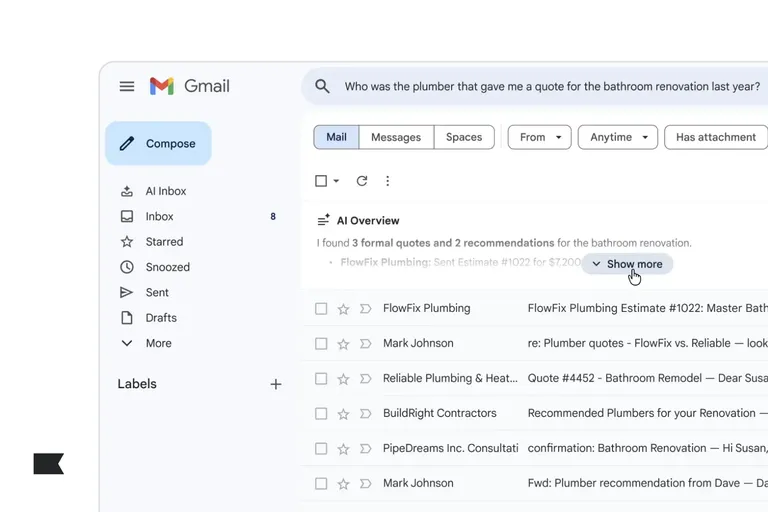The larger the business, the more complicated the tech stack—especially for ecommerce stores built on an open-source framework like Adobe Commerce.
Ease of integration, then, is of paramount importance when selecting new software.
When evaluating ecommerce integrations, Justin Ragsdale, VP of strategy at full-service digital agency IM Digital, says merchants should think about “all the things that you can do with that integration, how stable and secure that integration is, and how many people use that integration right now.”
Across tech solutions, most integrations with Adobe Commerce “are available via an API, which allows systems to communicate with each other,” Adobe explains. “The problem is that all platforms are not supported via an API, so understanding what is possible from a technical perspective is paramount.”
Here are 4 ecommerce plug-ins for Adobe Commerce email marketing that get it right:
- Marketing automation plug-ins for Adobe Commerce
- Front-end plug-ins for Adobe Commerce
- Website performance plug-ins for Adobe Commerce
- Anti-fraud plug-ins for Adobe Commerce
1. Marketing automation plug-ins for Adobe Commerce
Within Adobe Experience Cloud, Adobe offers its own proprietary marketing, data, and analytics solutions, including Adobe Campaign, Adobe Analytics, and Adobe Marketo Engage.
But if you’re looking for something cheaper and more user-friendly, a solution like Klaviyo combines marketing automation capabilities with a powerful built-in customer data management platform (CDP) to sync data from across your entire tech stack, giving you the ease and flexibility to manage various personalized email campaign and SMS marketing efforts across multiple stores.
It’s the same flexibility you’re accustomed to with Adobe Commerce—brought into your email marketing platform.
Klaviyo’s Adobe Commerce integration affords you the opportunity to monetize all of that data that you’ve been gathering this whole time.
Ragsdale believes Klaviyo’s pre-built Adobe Commerce integration, which syncs with your online store in just a few clicks, is one of the best on the market.
“You want to be a data-driven company. You invested in an enterprise-grade ecomm platform. Why aren’t you monetizing it?” Ragsdale points out. “Klaviyo’s Adobe Commerce integration affords you the opportunity to monetize all of that data that you’ve been gathering this whole time.”
And Klaviyo’s integration with Adobe Commerce is just the beginning of the email service provider (ESP)’s sophisticated functionality. Klaviyo enables brands to:
- Use built-in and customizable templates to create effective email marketing campaigns, text messages, and on-site sign-up forms.
- Segment subscriber lists without limitations, using any combination of events, profile properties, demographics, predicted lifetime value, and more—over any time range.
- Trigger marketing automations like abandoned cart emails, transactional email messages, and post-purchase follow-ups based on dates, events, email list membership, or segment membership.
- Capture additional user actions or properties with Klaviyo’s easy-to-use, hassle-free APIs.
- Use splits, filters, and A/B testing to determine good email subject lines, CTAs, and more.
- Easily track performance through Klaviyo’s customizable reporting dashboards in order to optimize for key customer engagement metrics, including open rates, click-through rates, and conversions.
- Create a cohesive, omnichannel customer journey for their target audience.
Most of IM Digital’s Klaviyo clients, whether B2C or B2B, use Adobe Commerce as their ecommerce platform. “They’re using Klaviyo for everything because it’s so incredibly easy to use,” Ragsdale says. “With everything else that’s going on, Klaviyo requires a relatively small investment of time and money to get powerful automations up and running.”
Many of the clients IM Digital transitions to Klaviyo were accomplishing the basics just fine with their previous marketing platform—abandoned cart automations, welcome series, promotions. But “that’s not what Klaviyo was designed for,” Ragsdale says. “Klaviyo was designed to ingest all that customer data and create thoughtful, personalized experiences and communications across your digital marketing channels.”
“Members of smaller teams wear many hats and spend a lot of time focused on all the other aspects of the business,” Ragsdale adds. “Being able to easily integrate Klaviyo, grab all of that data, and then set up these set-it-and-forget-it type of automations, has a dramatic impact on the top and bottom line of the business.”
Being able to easily integrate Klaviyo, grab all of that data, and then set up these set-it-and-forget-it type of automations, has a dramatic impact on the top and bottom line of the business.
2. Front-end plug-ins for Adobe Commerce
Large and enterprise ecommerce websites are complex, featuring a high volume of high-res images, third-party technologies, and custom code.
The most common challenge Adobe Commerce merchants face, then, is site performance: “Because most implementations require an immense amount of custom code, extensions, and third-party plug-ins, they often take a long time to load,” Ragsdale explains.
That’s why some Adobe Commerce merchants have started looking to front-end theme plug-ins like Hyvä, which uses the same templating system that’s built in to Magento to simplify the code involved in keeping an Adobe Commerce website up and running.
With Hyvä, you still have to build the house, but all your plumbing and electric lines are there for you to use.
Less code means less complexity. And less complexity means a better website experience. The company states its value proposition this way: “Hyvä products help you build the fastest stores while reducing cost and time to market.”
Ragsdale likens a website’s front-end theme to the foundation of a house. With Hyvä, “you still have to build the house, but all your plumbing and electric lines are there for you to use.”
“Hyvä themes are Magento 2 themes built from scratch using a completely blank theme,” Ragsdale explains. “All layout.xml, .phtml files, and JavaScript have been thrown out, resulting in a lean experience nowhere near as complex as the default Luma theme. By drastically reducing the amount of code that’s shipped to the user, we’re achieving maximum performance.”
3. Website performance plug-ins for Adobe Commerce
In the ongoing effort to “make sure their website performs fast and well,” Ragsdale says, YOTTAA is another favorite plug-in for large ecomm stores built on an Adobe Commerce tech stack.
Without a clear understanding of how third parties and other site elements are impacting your page load time, you could be losing shoppers—and revenue. A performance plug-in like YOTTAA gives you full visibility into how your website is performing.
Adobe Commerce merchants use YOTTAA to:
- Understand site performance through sophisticated analytics.
- Optimize their website to ensure the fastest, most consistent interactions with shoppers possible.
- Deliver more personalized and efficient page loads to shoppers, based on their device, browser, and location.
“YOTTAA provides ecommerce teams with the insights required to efficiently improve site speed,” Ragsdale explains. “It’s a really efficient way to maximize your site performance to achieve the highest conversion rates possible.”
4. Anti-fraud plug-ins for Adobe Commerce
Finally, Ragsdale gives a “shout-out” to Signifyd, a full-service cloud platform that uses real-time machine learning to automate fraud prevention—enabling ecommerce businesses to reduce the risk associated with increasing sales and opening new markets.
Signifyd offers guaranteed fraud protection and promises to solve a variety of challenging problems facing large and enterprise ecommerce businesses today, including:
- Loss of billions of dollars in charge-backs
- Customer dissatisfaction due to mistaken declines
- Operational costs related to manual investigation of transactions
According to the platform’s page on the Adobe Commerce Marketplace, “every Signifyd transaction is guaranteed to contribute to your bottom line, so you can maximize your revenue without the risk.”
Adobe email marketing FAQs
What is Adobe email marketing?
Adobe email marketing refers to Adobe’s suite of tools and solutions designed to create, send, track, and analyze email marketing campaigns. It includes features for designing visually appealing emails, segmenting audiences, automating workflows, and measuring email delivery and performance.
Why do businesses use Adobe email marketing plug-ins?
The use of Adobe email marketing plug-in apps helps businesses optimize their email marketing strategy, increase efficiency, and achieve better outcomes from their campaigns. These Adobe email campaigns help:
– Enhanced functionality– Third-party integrations– Increased customer experiences– Efficiency and automation– Design and dynamic content creation– Competitive advantage– Increased deliverability
It’s important for businesses to assess their specific needs and goals to determine which plugi-ns will provide the most value for their unique circumstances.
How can I get started with Adobe email marketing?
To get started with Adobe email marketing, sign up for an account, choose a plan that suits your pricing needs, and follow the onboarding process provided by Adobe.com. This usually involves setting up your templates and email content, importing contacts, and configuring campaign settings.
Want to know what makes Klaviyo right for Adobe Commerce merchants?




